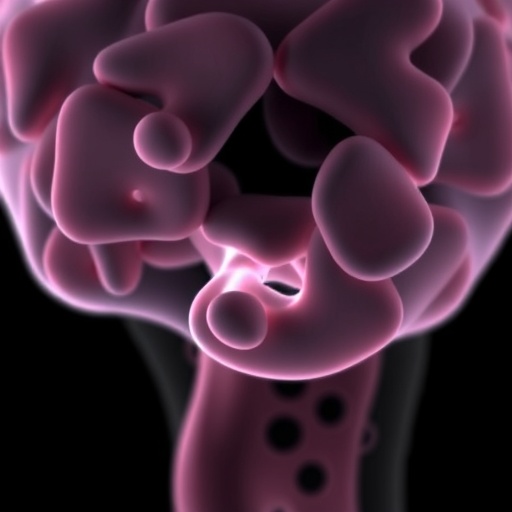Classical Kaposi’s sarcoma (CKS) represents a unique yet perplexing entity in the realm of oncological diseases. This rare form of cancer, fundamentally rooted in the aberrant proliferation of vascular tissues, is closely associated with Human Herpesvirus 8 (HHV-8). Predominantly identified within Mediterranean and Middle Eastern demographics, CKS manifests with distinct clinical characteristics, which have implications for prognosis and treatment pathways. A comprehensive understanding of the demographic factors influencing CKS can significantly enhance disease management protocols and patient outcomes.
In recent years, extensive research has aimed at deciphering the complexities surrounding CKS. Although historically considered more prevalent in the elderly, particularly among males, the nuances behind age, sex, and geographical distributions are critical pieces of information. These demographic subtleties can provide vital insights that may influence treatment choices and resource allocation within healthcare systems. Patients with CKS often present with a wide spectrum of symptoms that can complicate the diagnostic process, underscoring the importance of heightened awareness among healthcare professionals.
The objective of current research endeavors is not solely academic; it seeks an actionable outcome. By dissecting the demographic characteristics of those diagnosed with CKS, researchers hope to illuminate prognostic factors that dictate survival rates. A retrospective analysis involving records from patients diagnosed between January 2010 and December 2021 revealed compelling data that can alter how this disease is approached. The findings emphasize that certain demographic groups are particularly vulnerable, demanding tailored strategies for effective management.
Methodological rigor is essential in studies investigating rare diseases like CKS. With a cohort of 38 patients diagnosed with histopathologically confirmed CKS, investigations into varying aspects of each case provided substantial insights. Clinical characteristics, lesion presentations, treatment modalities, and patient responses were meticulously evaluated. This integrated approach allows for a more comprehensive understanding of the disease landscape, enabling healthcare providers to develop better-informed treatment modalities that account for demographic variances.
One of the most striking revelations from the study is the age distribution at diagnosis. The median age of the cohort stood at 71 years, highlighting the critical intersection of aging populations and susceptibility to rare malignancies. Understanding that ten patients were female and 28 male reinforces the necessity to focus on demographic-driven research and creates an opportunity for targeted awareness campaigns that address at-risk populations effectively.
When analyzing the stage of disease at diagnosis, researchers noted that over half of the cohort presented with localized disease. Approximately 63.2% of patients had this initial presentation, with a substantial percentage experiencing localized tumors in the lower extremities. This distinct localization suggests potential environmental and biological factors influencing disease development, opening avenues for further investigative studies and public health frameworks aimed at prevention.
Furthermore, the study’s follow-up data offered a stark overview of survival outcomes. On average, patients with localized disease enjoyed a median survival that was not reached, indicating a promising prognostic outlook under proper management. In revealing that those with locally advanced disease had a median survival of 31.1 months, the research encourages an urgency in the treatment approach for these groups. The sharp decline to 16.3 months for metastatic cases starkly advocates for late-stage intervention studies aimed at enhancing survival rates.
The occurrence of local recurrences during the follow-up elevated concerns regarding treatment efficacy and disease management. With nearly two-thirds of patients experiencing local recurrence, comprehensively understanding the factors contributing to these recurrences is crucial. Additionally, the frequent presentation of lymphedema alongside CKS cases adds complexity to management, potentially affecting patients’ quality of life and highlighting the interdisciplinary approach needed in treatment paradigms.
Equally, the study delineates the importance of tailored treatment strategies according to disease stage. The varying survival outcomes based on metastatic status underscore the urgency for clinicians to adapt strategies to effectively manage disease progression. In doing so, healthcare systems could enhance patient outcomes significantly and tailor care strategies that can accommodate individual risks, particularly focusing on newly diagnosed patients.
The vital takeaways from studies such as this extend beyond mere statistics; they emphasize the very fabric of patient care. Understanding the demographic characteristics and survival outcomes associated with CKS is not just about data but about translating that knowledge into actionable protocols that ensure appropriate screening, timely interventions, and effective treatments. The findings reported highlight both the necessity of early diagnosis and the development of individualized therapeutic approaches as paramount.
As research continues to evolve, the future of CKS management rests heavily on the shoulders of such analyses. The intricate tapestry of CKS, woven from demographic intricacies, urgent clinical presentations, and varied survival rates, calls for an integrated response within healthcare settings. This focused effort will ultimately contribute to the improved survival and quality of life for patients grappling with this challenging malignancy.
Through continual exploration and analysis of such specific malignancies, healthcare professionals can foster a deeper understanding of oncological complexities. This understanding unlocks new avenues for targeted research, ultimately leading to novel therapeutic approaches that can mitigate the toll of diseases like Kaposi’s sarcoma on populations worldwide. Thus, recognizing CKS as a pressing clinical and research priority is essential in shaping the future landscape of the medical community’s response to rare cancers.
Subject of Research: Classical Kaposi Sarcoma
Article Title: Classical Kaposi sarcoma: an insight into demographic characteristics and survival outcomes.
Article References:
Kavak, E.E., Ürün, Y. Classical Kaposi sarcoma: an insight into demographic characteristics and survival outcomes.
BMC Cancer 25, 690 (2025). https://doi.org/10.1186/s12885-025-14085-0
Image Credits: Scienmag.com
DOI: https://doi.org/10.1186/s12885-025-14085-0
Keywords: Kaposi sarcoma, HHV-8, demographic characteristics, survival outcomes, oncology, rare cancers, treatment strategies, patient care.




